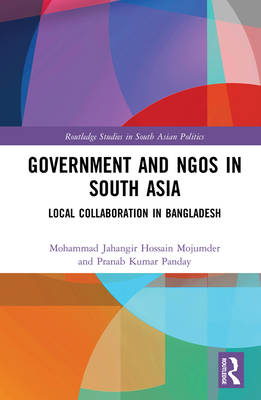
- Afhalen na 1 uur in een winkel met voorraad
- Gratis thuislevering in België vanaf € 30
- Ruim aanbod met 7 miljoen producten
- Afhalen na 1 uur in een winkel met voorraad
- Gratis thuislevering in België vanaf € 30
- Ruim aanbod met 7 miljoen producten
Government and NGOs in South Asia
Local Collaboration in Bangladesh
Mohammad Jahangir Hossain Mojumder, Pranab Kumar PandayOmschrijving
This book analyses efforts of Bangladeshi government and NGOs to strengthen local governance, and identifies the challenges posed by collaboration with NGOs.
Presenting a dominantly qualitative study, the analysis explores whether engagement between the Sharique project to strengthen local governance and the Union Parishads has translated into success. In doing so, it argues that evidence points to a positive impact on institutionalising good governance and fiscal autonomy through widening participation in planning and decision-making, reinforcing accountability of functionaries and enhancing tax collection. Furthermore, this book demonstrates that the collaboration has aided the process of development of social capital between officials of councils and NGOs, as well as amongst the community members, encouraging future partnership governance. However, with the phasing out of the project as a propelling force, it also shows that the results fall short of being sustainable and, as such, that statuary support, unequivocal political commitment, and incentivising engagements are required to stabilise outcomes.
Bridging a gap in the Development Studies literature, this book presents new findings on the collaboration of NGOs at the local level. It will be of interest to academics working in the field of South Asian Studies, Development Studies, and Asian Politics.
Specificaties
Betrokkenen
- Auteur(s):
- Uitgeverij:
Inhoud
- Aantal bladzijden:
- 270
- Taal:
- Engels
- Reeks:
Eigenschappen
- Productcode (EAN):
- 9780367423513
- Verschijningsdatum:
- 27/11/2019
- Uitvoering:
- Hardcover
- Formaat:
- Genaaid
- Afmetingen:
- 155 mm x 239 mm
- Gewicht:
- 612 g

Alleen bij Standaard Boekhandel
Beoordelingen
We publiceren alleen reviews die voldoen aan de voorwaarden voor reviews. Bekijk onze voorwaarden voor reviews.











